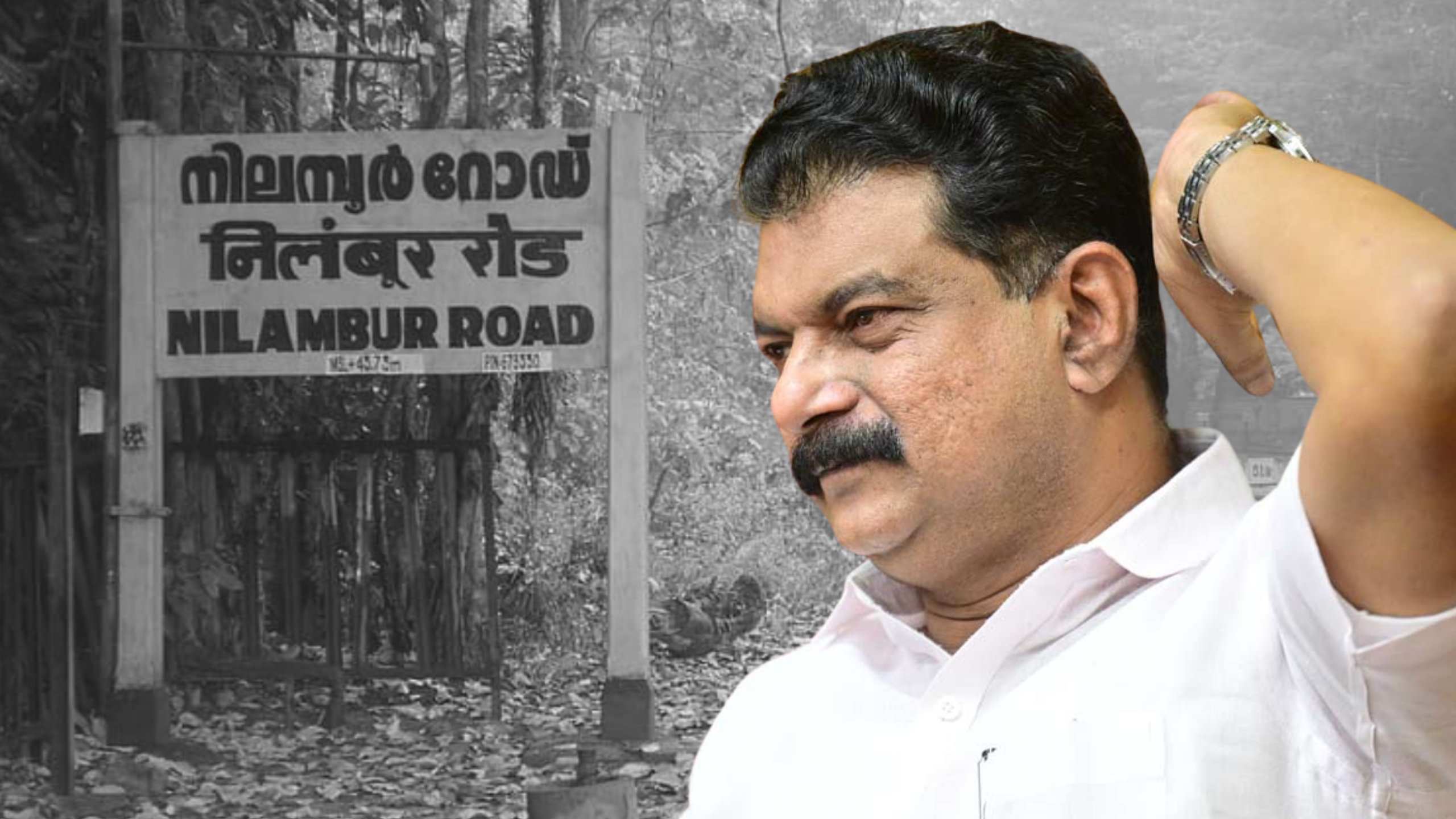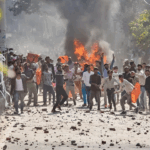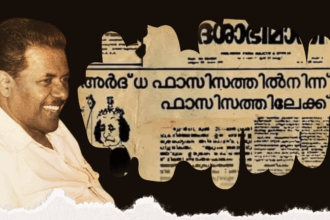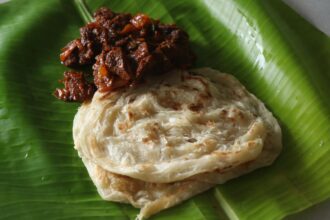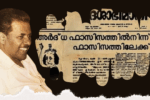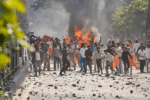The political theater of Kerala is rarely short on drama, and the upcoming Nilambur by-election, set for June 19, 2025, has already delivered a gripping act. At the center of this unfolding saga is P.V. Anvar, a once-rising star of the Left Democratic Front (LDF) who has now found himself on the margins of the state’s political mainstream. Just hours ago, on May 31, 2025, at 08:44 PM IST, Anvar dropped a bombshell: he will neither join the United Democratic Front (UDF) nor contest the Nilambur by-election, citing financial ruin and a lack of support from the UDF. This decision marks a pivotal moment for Anvar, who resigned as the independent MLA of Nilambur earlier this year, triggering the by-election, and recently joined the All India Trinamool Congress (TMC) as its Kerala state convener. What does this mean for Anvar’s political future in a state dominated by two formidable coalitions? Can he stage a comeback, or is this the beginning of the end for a politician known for his fiery rhetoric and grassroots appeal?
Anvar’s political journey has been a rollercoaster of ambition and defiance. He first made his mark in 2016, winning the Nilambur constituency as an independent candidate backed by the LDF, a feat he repeated in 2021. His tenure as MLA was defined by a combative stance against the LDF government, particularly Chief Minister Pinarayi Vijayan, whom Anvar accused of neglecting Nilambur’s pressing issues, such as the human-wildlife conflicts plaguing the region’s farmers. Anvar’s vocal dissent eventually led to his dramatic exit from the LDF earlier this year, a move that culminated in his resignation as MLA and the announcement of the Nilambur by-election. Seeking a new platform, Anvar aligned himself with the TMC, a national party with little foothold in Kerala but one that offered him the autonomy to craft his own narrative. Initially, he explored an alliance with the UDF, Kerala’s Congress-led opposition, hoping to leverage its organizational strength to challenge the LDF. But tensions with the UDF leadership, particularly over the choice of candidate for the by-election, led to a breakdown in negotiations, culminating in Anvar’s decision to step back from the electoral fray.
The Nilambur by-election has quickly become a high-stakes contest for Kerala’s major political fronts. The LDF has fielded M. Swaraj, a seasoned CPM leader and Nilambur native, aiming to consolidate its hold on the seat with a strong local candidate. The UDF, meanwhile, has nominated Aryadan Shoukath, a prominent Congress leader and son of the late Aryadan Muhammed, a veteran who once dominated Nilambur’s political landscape. Anvar, however, opposed Shoukath’s candidacy, advocating instead for V.S. Joy, the Malappuram District Congress Committee president, whom he believed better represented the region’s farming community. The UDF’s refusal to budge, combined with its demand that Anvar retract his critical remarks about Shoukath, deepened the rift. Anvar’s subsequent threat to field a TMC candidate if the UDF continued to “ignore” him raised the stakes, but his announcement today that he will not contest due to financial constraints suggests a strategic retreat. “I had lakhs of rupees income. I am destroyed by these people. I spoke for the people. IPS and IAS lobbies, RSS, LDF, and all others squeezed me and destroyed me. Now I have zero income,” Anvar declared in a press conference earlier this evening, laying bare the financial toll of his political battles.
Anvar’s decision not to contest the by-election may be a pragmatic one, but it also raises questions about his ability to maintain relevance in Nilambur, a constituency where he has cultivated a loyal voter base, particularly among the Muslim community, which makes up 43.9% of the electorate according to the 2011 Census. By stepping back, Anvar risks ceding ground to the LDF and UDF, both of which are eager to capitalize on his absence. A victory for Swaraj or Shoukath could erode Anvar’s influence in the region, making it harder for him to reclaim his political footing in the future. Moreover, his financial struggles highlight a broader challenge: the resource-intensive nature of electoral politics in Kerala. Without the backing of a major coalition, Anvar’s ability to mount a competitive campaign is severely constrained, a reality that may force him to rethink his approach as he navigates the next phase of his career.
The UDF’s rejection of Anvar has been a significant blow to his ambitions. Despite initial overtures from UDF leaders like Indian Union Muslim League (IUML) national general secretary P.K. Kunhalikutty and AICC general secretary K.C. Venugopal, the coalition ultimately refused to grant TMC full membership. UDF convener Adoor Prakash made it clear that any accommodation of Anvar would require alignment with the front’s policies, a condition Anvar was unwilling to accept. Anvar’s criticism of Leader of the Opposition V.D. Satheesan, whom he accused of using the by-election to “corner” him rather than target the LDF, further strained relations. The UDF’s decision to distance itself from Anvar likely stems from a combination of factors: his pressure tactics, including a 48-hour ultimatum for “concrete accommodation” in the alliance, may have been seen as divisive; the coalition’s confidence in Shoukath’s candidacy, bolstered by its recent successes in by-elections in Puthuppally, Thrikkakara, Palakkad, and Wayanad, may have reduced the perceived need for Anvar’s support; and strategic calculations in Nilambur, where Shoukath’s demographic appeal as a Muslim leader aligns with the UDF’s voter base, likely outweighed Anvar’s potential contributions.
For Anvar, the UDF’s rejection has left him politically isolated, a precarious position in Kerala’s bipolar political landscape. Joining the UDF could have provided him with the resources and platform to challenge the LDF more effectively, but his fallout with the coalition has closed that door for now. This isolation poses a significant challenge to Anvar’s political future, as he must now find a way to sustain his relevance without the backing of a major alliance. His financial constraints further compound this challenge, limiting his ability to mobilize voters and build a robust campaign infrastructure. Additionally, the TMC’s negligible presence in Kerala means Anvar lacks the organizational support needed to compete with the LDF and UDF, both of which boast extensive grassroots networks. Building a state-level organization for the TMC will be a daunting task, one that Anvar may struggle to accomplish given his current circumstances.
Despite these challenges, Anvar’s political future is not without opportunities. His outspoken criticism of both the LDF and UDF positions him as a potential anti-establishment leader, a role that could resonate with voters disillusioned by the state’s dominant coalitions. In a political climate where voter fatigue is not uncommon, Anvar’s narrative as a voice for the marginalized, particularly in rural areas like Nilambur, could help him maintain a foothold. His alignment with the TMC, while currently a liability in Kerala, offers a national platform that could prove advantageous in the long term. By forging ties with TMC leaders like Mamata Banerjee, Anvar may gain access to resources and networks outside Kerala, enabling him to build a broader coalition over time. Furthermore, his focus on local issues, such as human-wildlife conflicts, continues to resonate with Nilambur’s farming community, providing a foundation for future electoral campaigns, such as the 2026 Kerala Assembly polls.
Anvar’s trajectory also has broader implications for Kerala’s political landscape. The Nilambur by-election is being viewed as a “quarter-final” ahead of the 2026 Assembly elections, and its outcome will shape the strategies of the LDF and UDF. An LDF victory, led by M. Swaraj, could embolden the CPM to rely more heavily on in-house candidates, reducing its dependence on independents like Anvar, as it did in 2016 and 2021. A UDF win, on the other hand, would reinforce its dominance in Nilambur and potentially marginalize Anvar further. For Anvar, the key to survival lies in maintaining his relevance outside the electoral arena. By opting out of the by-election, he may conserve resources and focus on rebuilding his political capital, positioning himself as a critic of the establishment to appeal to disaffected voters. However, this strategy is not without risks, as it requires him to sustain public interest without the platform of elected office or a major coalition.
As Kerala heads toward the 2026 Assembly elections, P.V. Anvar stands at a crossroads. His decision to step back from the Nilambur by-election and the UDF alliance has left him politically isolated, but it also offers a moment for reflection and recalibration. Whether Anvar fades into obscurity or emerges as a kingmaker in Kerala’s evolving political landscape will depend on his ability to overcome his financial and organizational challenges, reconnect with his voter base, and adapt to the state’s shifting dynamics. For now, all eyes are on Nilambur, where the by-election’s outcome will serve as a barometer of Anvar’s enduring influence—and a preview of the battles to come.

